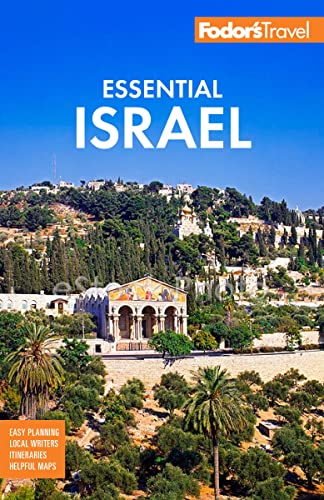Bedouin Culture
Bedu, the Arabic word from which the name Bedouin derives, simply means "inhabitant of the desert." Some 160,000 Bedouin, seminomadic Arab tribespeople and full citizens of Israel, live in the Negev. The present-day Bedouin of the Negev (and the Sinai) trace their origins to nomads of the Arabian Peninsula who wandered west 400 to 600 years ago. The exceptions are members of the Jebeliya tribe, descendants of East European slaves sent by Emperor Justinian to serve Greek monks at St. Catherine's Monastery at Mount Sinai. The slaves slowly adopted the Bedouin way of life, and they still serve the monks from their desert nearby.
Since Israel gained independence in 1948, the Bedouin's urbanization and integration into Israeli society has been difficult. The Negev's Bedouin men have loyally served in the Israeli army, and some have lost their lives doing so. Starting in the late 1960s, however, the Israeli government built seven Bedouin towns, the largest of which is Rahat (a settlement of over 40,000 residents, 10 minutes north of Beersheva), and encouraged resettlement. Their simple, nomadic way of life becomes more difficult to maintain each year as they resist these policies.
Earning a Living
The Bedouin's main livelihood is the raising of livestock, camels, and black goats in particular. The animals supply milk, meat, hair for weaving, and dung for burning as fuel. The wanderings of the Bedouin are driven by the unending search for grazing land and water for their flocks. Marriages are arranged, taking family interests into account. It is not uncommon today for a man to have two wives, the first wife and a younger one to help her. The Bedouin boast one of the highest birth rates in the world.
The family is structured as a business. Men, who work as herders, make decisions about buying and selling livestock as well as finding new pastures. Women and children do the cooking, weaving, searching for firewood, and often caring for the flocks.
Hospitality and Heritage
A Bedouin proverb says, "He who shares my bread and salt is not my enemy." Bedouin are known for their warm hospitality. It is not only a pleasure to extend hospitality; the Bedouin see it as a duty. A Bedouin host would never fail to invite a stranger into his tent. And refusing a Bedouin's invitation would be unthinkable because it would deny the host an opportunity to display his kindness. Having the honor of being invited by a Bedouin host to drink sweet tea or coffee, made over an open fire in his tent, is an unforgettable experience. A Bedouin tent is customarily divided into two sections by a woven curtain known as a ma'nad. Having been welcomed into a tent, guests are honored, respected, and nourished, frequently with cardamom-spiced coffee, and with music played on a traditional instrument called the rababa, a one-string violin.
A rich heritage of poetry has been passed down through the generations by word of mouth. Only in the past few years have these words been recorded, written in their original Arabic, and preserved by scholars who recognize that the Bedouin way of life is rapidly slipping away.




